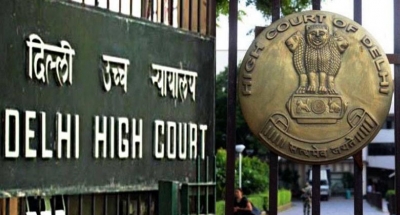By Jaison WilsonNew Delhi, July 31 : The Delhi High Court has observed that freedom of expression includes the ‘art of satire’ and at all times in our culture, satirists have been greatly respected.Some art forms, which still exist, even allowed criticism of monarchs.
Justice Asha Menon said that “Ottan Thullal” and “Chakyar Koothu”, both from Kerala, are examples of such satirical art forms.
“Sharp use of language conveys the message intended by the artist, but in a cultured and nuanced manner.Such creative genre must, without doubt, be encouraged and protected,” the single-judge bench noted while dealing a suit against news portal News Laundry whose programmes are claimed to be satirical.
“While freedom of expression would include the art of satire, it must be evident that what was being presented is indeed satire,” the court held, adding that it must be self-evident and by its very character, can never be a case of copyright infringement or defamation, or even disparagement.
The court also highlighted that a satire cannot be explained or else it would lose its flavour.Satire allows the satirist to criticise and critique actions of all, particularly of those in positions of power and/or authority and leadership, it said.
It observed that the intention of the satirist is to simultaneously highlight an action and its negative fallout so that rectificatory action may be taken.It is never intended to disparage or harm reputation, and thus is completely devoid of malice.
The court was dealing a suit moved by TV Today Network seeking damages of Rs 2 crore for copyright infringement and defamation against News Laundry, its anchors, management, and employees.
As per the plaintiff (TV Today), News Laundry had published various videos and articles containing false, malicious, defamatory and derogatory information on their website as well as on various socialmedia platforms, tarnishing its reputation.
The court noted that as the defendants (News Laundry) claim that their programme is satire, they need to explain which one of their programmes is “satire”, what portion is “comment” and what is justified “criticism”.But whether the comment is satirical or malicious would have to be established as a fact and therefore, would require trial and a presumption cannot be made at this stage.
It was also said that the contents of the individual videos, the articles, the Facebook and Instagram posts will have to be looked into individually to determine if they contain malicious, dishonest, defamatory and disparaging statements or constitute honest and possible satirical opinion.
Denying granting relief to the plaintiff, the court further held that every media house, TV channel, or social media platform have their own philosophy, which gets reflected in their manner of reportage and content of the programmes, and that is not necessarily a bad thing.
It was also noted that the right to free speech is an important right, but reputation is an equally important right.
“.the right to free speech and expression carries with it the right to publish and circulate one’s ideas, opinions and views with complete freedom and by resorting to the available means of publication, which, in the opinion of this court, would also mean and include not only the electronic media and TV channels, but also social media platforms as the object of publication and broadcast is the same i.e., to reach out to the public,” the order added.
Chakyar Koothu traces its origin in ‘soothavruthy’, the act of storytelling that dates back to the 16th century, in which the jester narrates episodes from Hindu epics Ramayana, Mahabharata, and stories from the Puranas.
Sometimes, the monologue will incorporate commentary on current socio-political events and can also make witty remarks and sarcastic observations for the audience.
The narrator ‘Vidushaka’, who comes in with minimal choreography, will combine prose and poetry while delivering his performance in the native language, Malayalam.
Ottan Thullal originated following a small incident that occurred during a Chakyar Koothu performance.The performer ‘Chakyar’ ridiculed poet Kunchan Nambiar, who fell asleep while playing a traditional drum called mizhavu.
In ‘revenge’, Nambiar formed his own version of an art form — Ottan Thullal, a recite-and-dance art form in the 18th century.
Though the king banned the song-and-dance art form initially as it made fun of the many eccentricities of society, it soon gained popularity, surpassing even the then popular art form Chakyar Koothu.
jw/kvd/vd
#Kerala #folk #Delhi #India #Malayalam #Mollywood #Kunchan #Lal # Lal #Delhi #New Delhi #Kerala #Sharp #Facebook #Instagram
.






